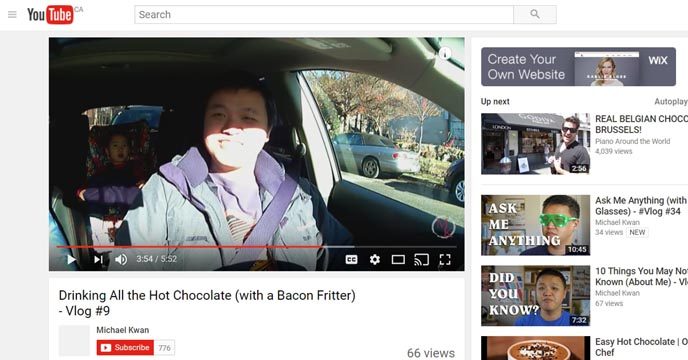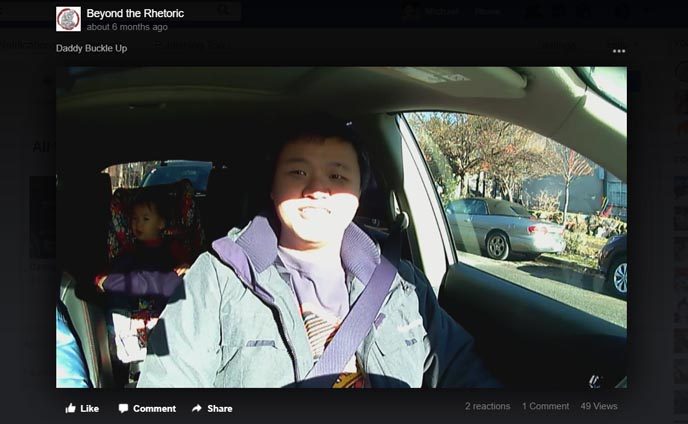It’s pretty obvious that video has become an increasingly big deal on the Internet for individuals and brands alike. You can likely attribute this to the convergence of several trends.
Internet connections, both at home and on mobile devices, are faster and more readily available than ever before. Camera technology is also more accessible than ever before, particularly on smartphones, but also with higher quality prosumer and even professional cameras being more affordable too. Add in the increased focus on video across nearly all the most popular social networks and it’s pretty clear that video is indeed a very big deal.
It’s not at all too late for you to jump onto this rising trend, but one of the big questions you may need to ask yourself is whether you should be posting your videos on YouTube or on Facebook. There are other channels, like Vimeo, Instagram, and Twitter, as well as the option of hosting the videos yourself for publication on your own websites, but Facebook and YouTube are the two biggest elephants in the room and they need to be addressed.
We also have to remember that none of these video options are going to be completely mutually exclusive. There is nothing stopping you from posting a video on YouTube and then embedding that video on your blog, as both John and I do on a regular basis. There’s also nothing stopping you from cross-posting the same video on both Facebook and Twitter. That’s completely up to you and there are certainly pros and cons for making such a decision. But when it comes to just Facebook or just YouTube, which is the better choice?
The answer, as it is so often when it comes to these sorts of questions, is that it depends. Sorry. That probably wasn’t the answer you were looking for. Ultimately, it depends on the kind of video that you have and the objectives or goals you have for that video.

If you want to build an audience and make money from your videos directly, YouTube is likely the better of the two options. The Adsense integration makes monetization really easy. You can also make money from your YouTube videos through an innumerable selection of other opportunities too, including Amazon links in the video description, Patreon support, sponsored partnerships with brands, and so on.
Since YouTube is more “open” than Facebook, it may also improve your chances of discoverability as people may be searching for keywords that are relevant to your content. YouTube videos tend to have a longer shelf life, in this way, as videos several weeks, months or even years old can and do still pop up in search results. This is true not only within YouTube itself, but also when people search on Google, since YouTube videos tend to filter to the top of the results as well.
But YouTube isn’t universally the best option, not under all circumstances. There’s also Facebook.

The types of videos that tend to perform better on Facebook are shorter in length and more “viral” in nature. This is where you’ll find those quick cut recipe videos, for instance, as well as shorter videos that are meant to be funny, shocking, or otherwise amusing. The goal is to have them shared as far and as wide as possible.
Just as shorter videos like these don’t do as well on YouTube, longer videos don’t tend to do very well on Facebook either. People are there looking for a quick hit as they scroll through their feeds. They don’t really want to linger on any one post — whether it’s text, a picture or a video — for more than a few seconds at a time.
Facebook is very good at brand building and at attracting “reactions.” It’s more about playing the long game, as the individual video doesn’t matter as much as trying to get people to like your page and to continue engaging with your content for long-term reach and influence.
Since there is no baked in support for monetization, you likely won’t be making any money from your Facebook videos directly. It’s more secondary in nature. A combined strategy that you might consider is to post a curated excerpt or highlight video on Facebook, encouraging people to visit YouTube or your website to watch the whole thing. That’s how many of the recipe videos work, because the shorter form doesn’t really explain how to create the dish in detail.
At the end of the day, there is no simple answer. It really depends on what you want to accomplish with your video, as well as how your audience reacts to these videos. Experiment, test, and experiment again to see what works best for you.
